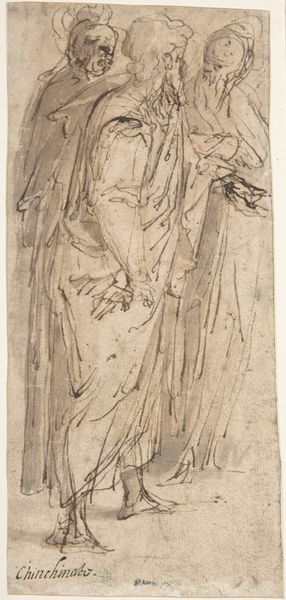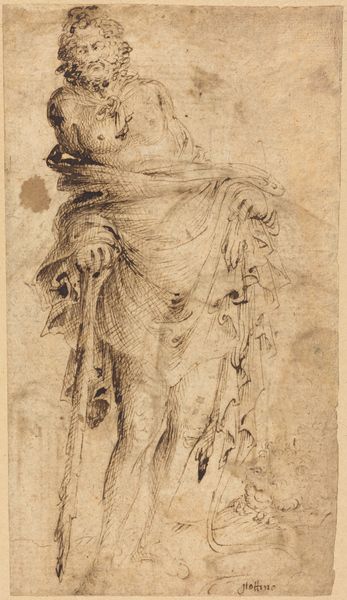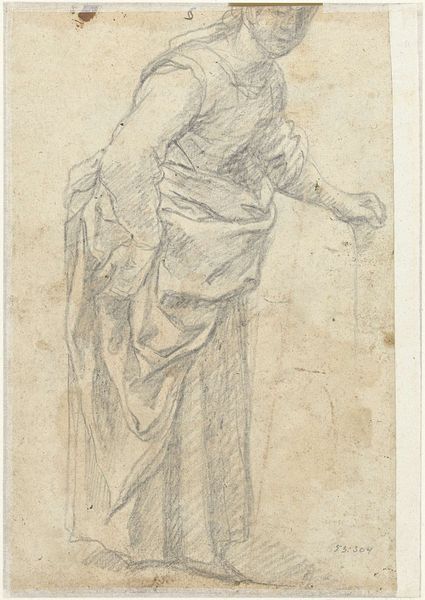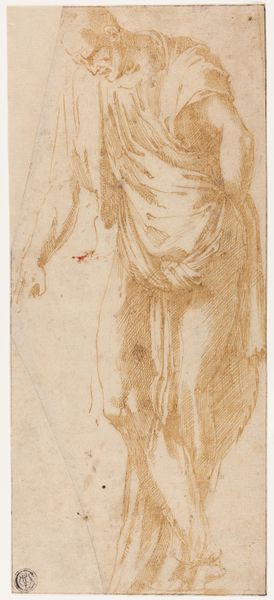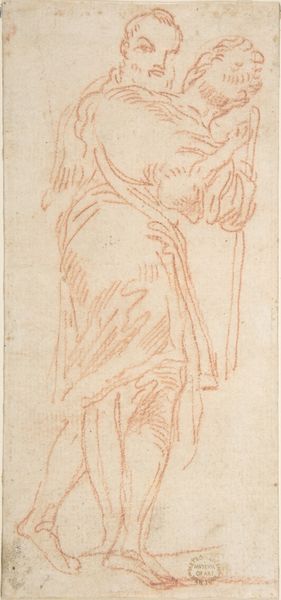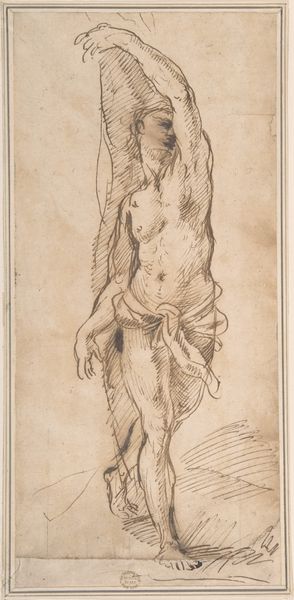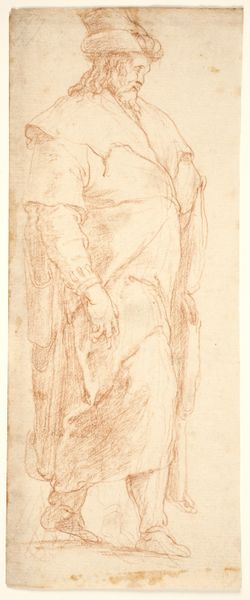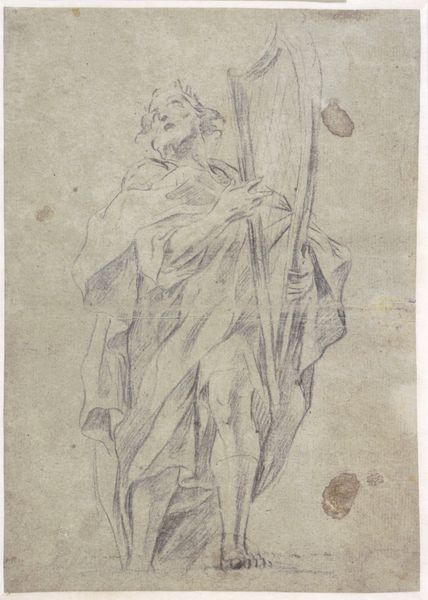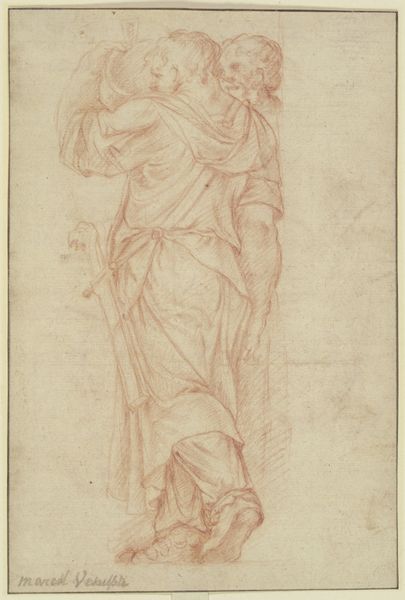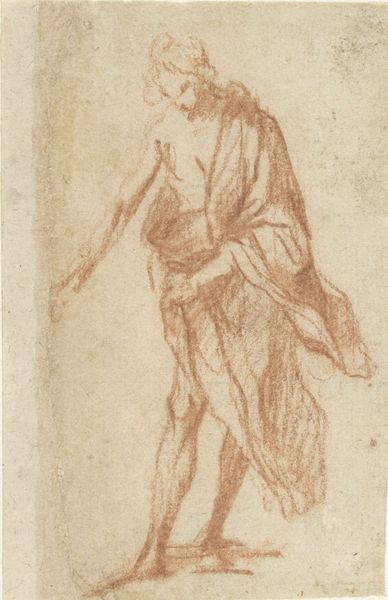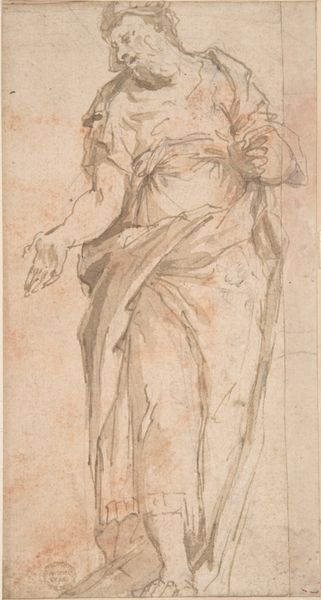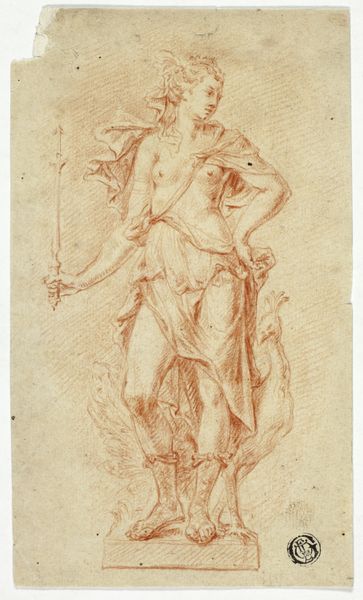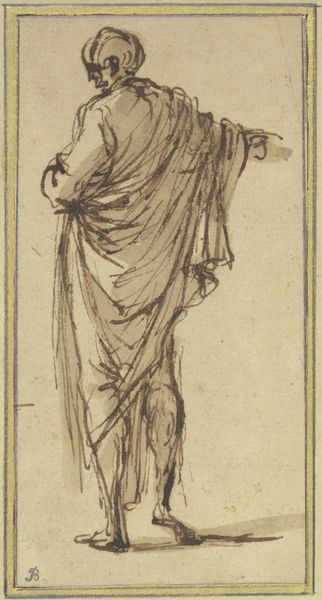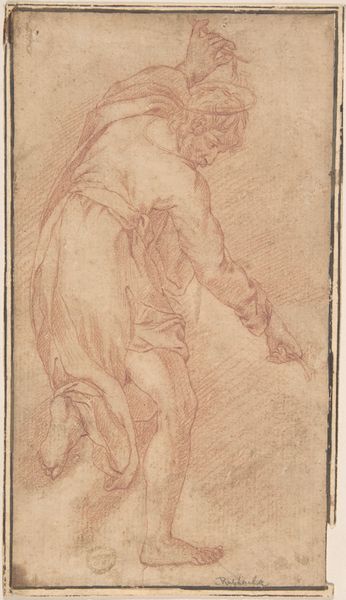
drawing, print, pencil
#
drawing
# print
#
figuration
#
11_renaissance
#
pencil drawing
#
pencil
#
history-painting
Dimensions: 3 7/16 x 2 1/2in. (8.8 x 6.3cm)
Copyright: Public Domain
Editor: Here we have Parmigianino's "Justice Holding Scales," likely dating from between 1503 and 1540. It’s a drawing, maybe a print, made with pencil, and it’s smaller than I imagined. What grabs me is how unfinished it feels, yet the figure still manages to convey such a powerful sense of balance. What do you see in this piece? Curator: Its beauty lies precisely in that feeling of incompleteness. Look closely at the figure; the dynamic hatching gives volume, an almost sculptural presence despite the lines remaining open, unresolved. Editor: So the process is part of the point? The roughness makes it more dynamic? Curator: Precisely. The swiftness of the marks – the 'sprezzatura,' if you will – encapsulates a Mannerist aesthetic that privileges grace and facility. The subject matter of justice allows an elegant pretext to express the artist's virtuousity with line. It’s an aesthetic equation; form dictates meaning, not the other way around. Notice how the figure itself is off-centre. The composition rejects traditional Renaissance balance for a more stylized imbalance, wouldn't you say? Editor: That makes sense. So the slight imbalance visually reflects the precarious nature of justice itself? The form mirroring content? Curator: A tempting reading. I’m interested in what the work does, rather than represents. The medium isn't merely a vehicle; it is constitutive. The composition is an end to itself. Editor: This has completely changed my perspective. Now I'm not just looking at a drawing, but the artist’s intention captured through line and form. Thanks! Curator: My pleasure. Focusing on the interplay of these visual elements deepens our understanding, enriching our artistic encounter, I would hope.
Comments
No comments
Be the first to comment and join the conversation on the ultimate creative platform.
